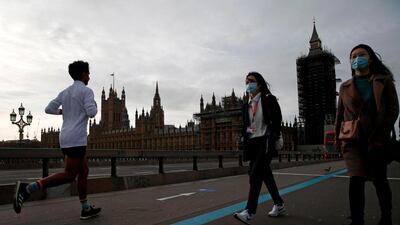Global foreign direct investment flows are expected to face a gradual U-shaped recovery in 2022 as it gradually shakes off the impact of Covid-19 on the world economy, according to experts speaking on the global investment outlook on Tuesday.
Foreign investment globally is projected to decline by a further 5 to 10 per cent in 2021 as Covid-19 dampens investment outlook before gradually rebounding in 2022, experts said at a webinar organised by the Islamic Development Bank Group and the United Nations Council on Trade and Development.
“Global FDI will face a U-shaped recovery versus a V-shaped recovery projected for global gross domestic product and trade next year. It is normal for FDI to lag behind according to the nature of the investment cycle versus the global business cycle,” said James Zhan, director, investment and enterprise division, Unctad.
“Overall, the outlook for global investment, GDP and trade are highly uncertain. Prospects for recovery depend on the duration of the pandemic and effectiveness of policy response. Furthermore, geopolitical conflicts, financial risks and trade tensions will add more uncertainty.”
The international FDI flows are expected to decrease by up to 40 per cent this year from $1.5 trillion in 2019, according to Unctad. This is the first time global FDI will go below $1tn since 2005.
Global FDI flows dropped 49 per cent annually to $399 billion in the first half of the year, the organisation said in a report in October. Developed economies saw the biggest fall, with the FDI reaching $98bn in the first six months of the year, an annual decline of 75 per cent.
Developing countries weathered the storm relatively well in the first half of the year, with an average decline of 16 per cent in FDI inflows. Latin America and Africa took the biggest hit in foreign investment while Asia too saw a lesser inflow of FDI, as per Unctad data.
Covid-19, which has infected 55.5 million people globally and claimed more than 1.32 million lives, has tipped the world economy into its worst recession since the 1930s. The International Monetary Fund expects global output to shrink 4.4 per cent this year and recover only modestly in 2021.
The World Trade Organisation estimated a 9.2 per cent decline in the volume of world merchandise for 2020, and forecasted growth of 7.2 per cent for global trade in 2021.
"Covid-19 resulted in a triple shock of supply, demand and policy. It had a severe impact on trade, global value chains and investment. The outlook for next two years remains highly uncertain," Mr Zhan told delegates at a webinar on Impact of Covid-19 on the Global Investment Outlook.
However, he expressed optimism that FDI stock share of global GDP is more than 40 per cent. Citing the example of developing countries, Mr Zhan said the share of their FDI stock over GDP is more than 30 per cent.
“We need to ensure to promote new investment as well as retain and facilitate existing investment during the pandemic and in the immediate future,” Mr Zhan added.
Meanwhile, the GDP of IsDB member countries is expected to contract 2 per cent this year, with a significant deterioration in current account balance and fiscal sustainability, Amadou Diallo, acting director general, global practices at IsDB, a multilateral development bank focused on Islamic finance, said.
Mr Diallo said the IsDB Group has committed a funding package of $2.3bn to help its member countries' economies. “We are helping member countries in mobilising external resources and accessing cheap short- and medium-term finance for the benefit of the private sector,” he added.
The need to implement lockdown procedures in many countries has resulted in supply chain and trade flow disruptions, further worsened by many nations' protectionist approach to trade, Oussama Kaissi, chief executive, Islamic Corporation for the Insurance of Investment and Export Credit, said.
“The risks associated with trade and investment have also been heightened because of the pandemic. It has adversely affected appetite for risk across all industries. This will reverse the already lacklustre growth in global investment in the past decade,” Mr Kaissi told the webinar.


